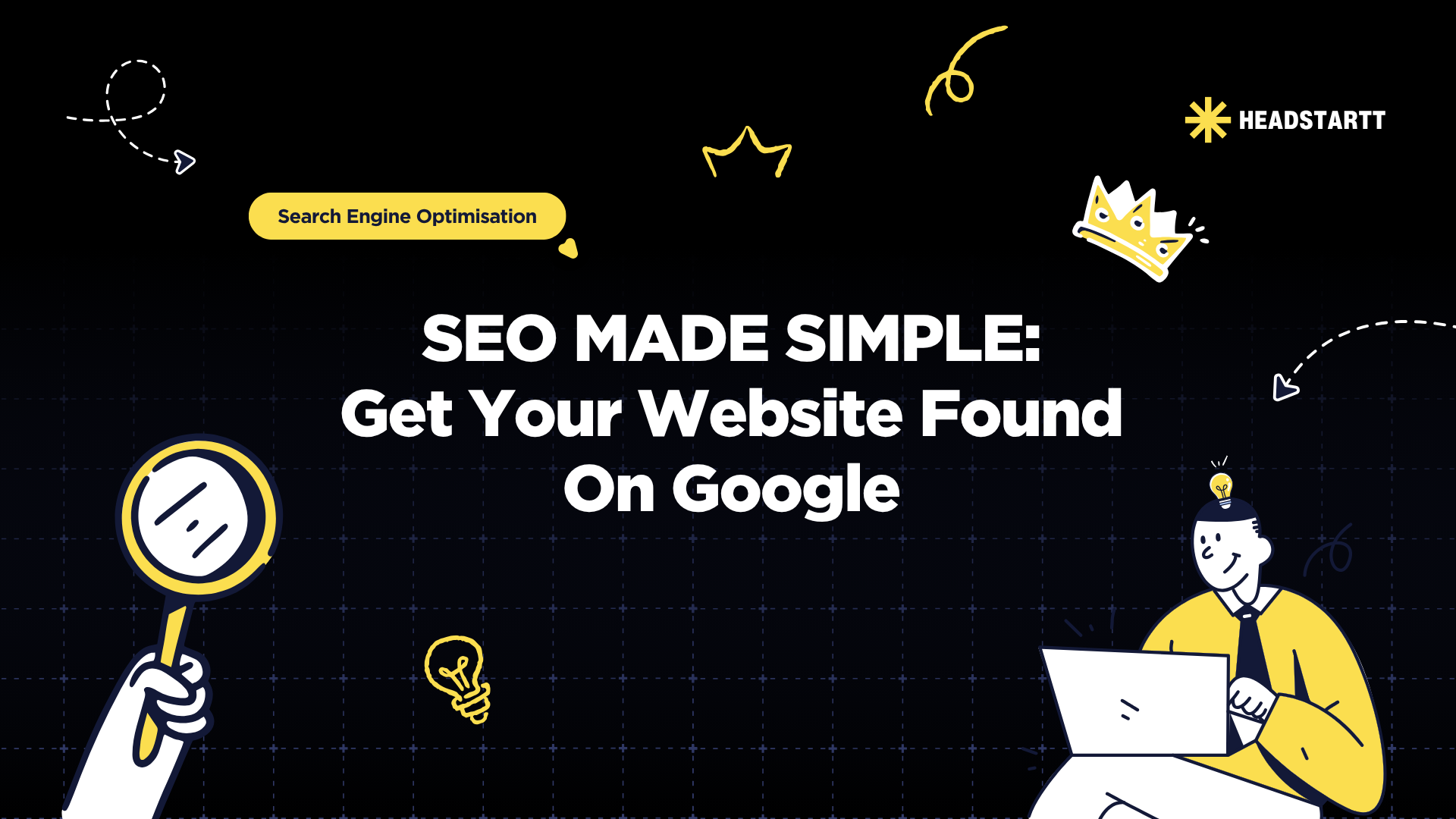SEO Made Simple: How to Get Your Website Found on Google
A beautiful website won't do anything if people can't discover it, let's face it.
In today’s digital-first world, just being online is not enough. It's like being there, but not there yet. As a brand, you have to ensure you are visible, searchable, and accessible to the correct audience. You can fulfill that with the help of Search Engine Optimization.
SEO is all about knowing how people search the internet and how you make sure your website comes up when they need what you have to offer.
It is important for one to understand the basics of SEO, as it has an important effect on how clients find you, regardless of whether you're managing a small business, operating as a freelancer, or developing a developing brand.
Understanding the Basics of SEO
Let's unlock the basics of SEO. The better your SEO, the more people are likely to discover your business. It is the process of improving your website so it appears higher in search results on Google and other search engines
Why SEO Matters
Think about how you search for things online — maybe “best café near me” or “affordable graphic designer.” You probably click one of the first few results, right?
You are losing visitors and potential sales to your competitors if your website is not showing up near the top. SEO helps you change that. It brings your business in front of the right people, increases credibility, and can even reduce your dependence on paid ads.
How Search Engines Work
Google deploys tiny software applications called crawlers to browse the internet, accessing websites and gathering data from every page they come across. The information that these crawlers collect is kept in Google's extensive index, which functions similarly to a massive online library. When someone searches for something, Google scans that index and pulls up the pages it thinks will best answer the question.
Your objective is straightforward: make your website easy for Google to read and comprehend, and construct it such that it conveys to users that your material is reliable, beneficial, and deserving of being seen by those conducting internet searches.
Key Elements of a Successful SEO Strategy
Great SEO is about creating a website that people want to visit. It is not just about stuffing keywords or chasing backlinks. Here are the key areas you should focus on.
Keyword Research
The search terms that people use when searching the internet are known as keywords. Think like your customer to identify the best ones. How would people search for your service on Google?
Utilize free resources such as Google Keyword Planner, Ubersuggest, or AnswerThePublic, Ahref, Semrush to find out what people are looking for. Choose keywords that have a high search volume yet little competition.
Choose targeted keywords like "simple SEO tips for small businesses" rather than general ones like "SEO" because they are easier to rank for and draw in customers who are actually interested in what you have to offer.
On-Page Optimization
Once you know your keywords, the next step is to use them smartly. On-page SEO is about optimizing the content and structure of each page on your site.
Here’s what matters most:
Use clear, descriptive page titles and meta descriptions. Include your main keyword naturally in headings and early in your content. Add internal links to related pages or blog posts. Use proper H1, H2, and H3 tags to organize your writing. Don’t forget to add alt text to your images, it helps with accessibility and rankings.
A clean, readable layout improves both user experience and Google’s understanding of your content.
Technical SEO
Behind every great website is solid technical groundwork. Technical SEO ensures your website runs smoothly, loads quickly, and is easy for search engines to explore.
Check these essentials:
Your website should load in under three seconds. Make sure it’s mobile-friendly — most people search on phones now. A well-structured, fast site not only helps SEO but also keeps visitors from leaving too soon.
Content Quality
Websites with more unique content rank better. The more helpful and guiding your website content is, the better. The saying "content is king" is not new. Google gives credit to websites that actually assist users.Give informational, problem-solving, or inspirational content for your readers. Post blog entries, how-to manuals, or case studies to impart your expertise. It's advisable to avoid copying or replicating content. Being unique builds up confidence.
Link Building
Links are like recommendations for your website. When reputable websites link to yours, Google sees it as a vote of confidence.
Focus on quality over quantity — one good link can be worth more than ten weak ones.
Measuring SEO Success
SEO is an ongoing process and not a temporary single time fix. The essential part of tracking progress is tracking performance also.
Using Analytics Tools
Using Analytics Tools is important for your wwebsite.search Console and Google Analytics yield data for how people are looking up for your website. Keep a track of your organic traffic, keyword positions and click-through rates consistently.
Tracking Conversions
Results make a huge difference,even though traffic seems great. You must keep a check of how many visitors are filling out forms, signing up, or making a purchase. These insights showcase if your website is actually attracting the right people or not.
Wrapping It Up
SEO is time consuming,but effort counts at the end. Your website going up on Google is a game of patience. It needs clarity and vision. And consistency. Good content has to be your primary focus. Not to forget, value and knowledge of customer needs.
Want us to step in for your website to rank high? Wish to see your brand scallop to newer heights? Headstartt is here to help you. For more information, you can connect with our marketing experts and team.

